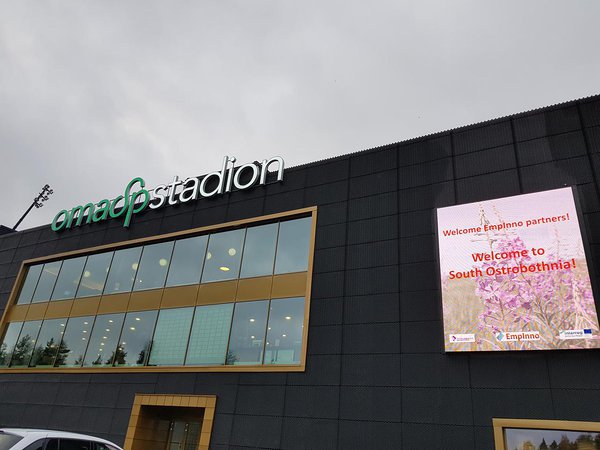Smart and outstanding for innovation – EmpInno in South-Ostrobothnia, FI

The good practice of regional innovation policy instrument “Epanet University Network and University Consortium of Seinäjoki” was lively presented and certainly inspired several partners to consider joining scientific forces, based on a close triple helix cooperation between industry, university and governmental entities – also in less central cities and regions. Inspirational was also the general discussion about policy traps and different sources of power for implementing the RIS3 that was introduced by a keynote speech of Prof. Markku Sotarauta (Tampere University), entitled “Regional (Place) Leadership and Implementation”.
Finally, the partners learned about the smart specialisation strategies from the two Finnish regions Satakunta and South-Ostrobothnia (available in the documents section) – including also their relations with other strategies like the regional programmes. This again underlined the different strategic contexts in which all RIS3 need to be considered when discussing e.g. about how to improve or monitor the RIS3. Finnish regions like the two presented are considerable smaller (e.g. less than 230.000 inhabitants) than e.g. the Baltic countries – nevertheless, they have their own smart specialisation strategy and other strategic programmes in place.
Picture: REM Consult

